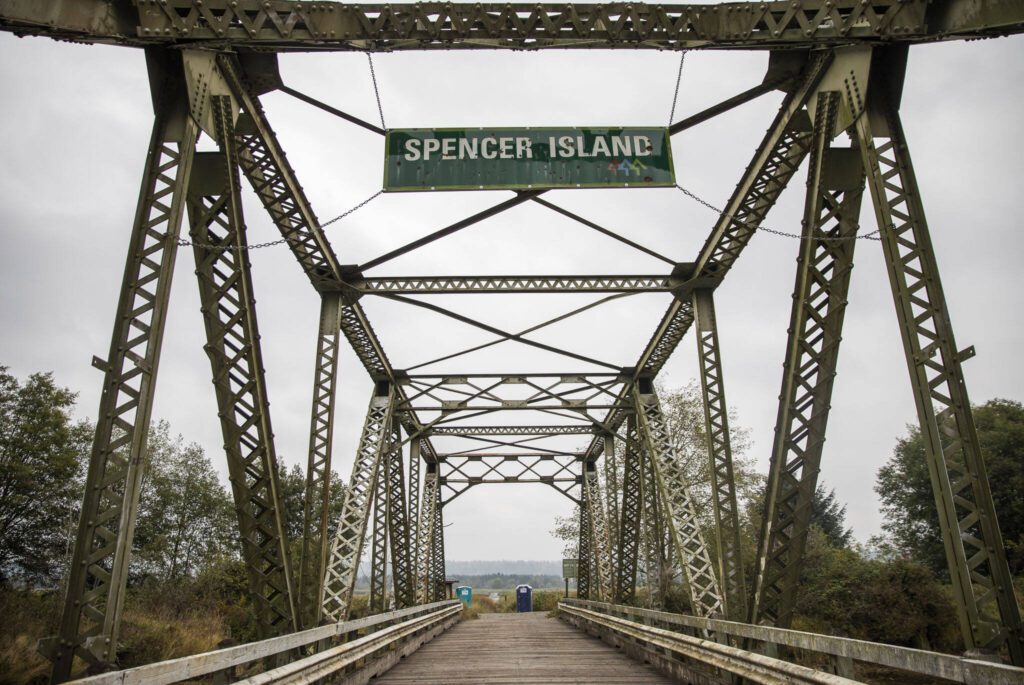EVERETT — Climate resiliency projects in the Snohomish River delta received a $21 million boost this summer, the National Oceanic and Atmospheric Administration announced last month.
Snohomish County, the Snohomish Conservation District, the Tulalip Tribes and the state Department of Fish and Wildlife are among the organizations bolstered by grants through the Climate Resilience Regional Challenge, a program designed to support communities, habitats and infrastructure particularly vulnerable to climate change.
Snohomish County plans to use $16.7 million to restore 430 acres of tidal wetlands at Chinook Marsh.
County staff spearheading restoration efforts hope to reconnect Ebey Slough to its natural floodplain, creating more habitat for threatened Chinook salmon.
Chinook — a favored snack for the endangered southern resident orcas — have had low runs this year in Western Washington. And the species’ population has declined 60% in the Salish Sea since the mid-1980s.
Contractors for the Chinook Marsh project would remove an aging 2-mile-long levee built in the 1920s to protect local farms from flooding.
The levee has “required expensive management,” said Erik Stockdale, planning manager for Snohomish County Surface Water Management.
County planners want to replace the old structure with a new cross-levee that would still offer flood protection while making more habitat available for fish.
Construction is expected to begin in 2026, though the project team said that may change, depending on available funds and permits.
The Snohomish Conservation District also received $2 million to reduce flood risks on 400 acres of farmland between Ebey and Swans Trail sloughs. The money will allow staff to design projects aimed at improving drainage in the watershed and salmon-rearing channels in Swans Trail Slough.
The Tulalip Tribes will invest $500,000 from the Climate Resilience Regional Challenge in holding community workshops to identify local flood risks. Leaders will also develop plans to restore critical salmon habitat on more than 6,000 acres of tribal land.
And on Spencer Island, the state Department of Fish and Wildlife will use $2 million to create accessible recreational opportunities.
Trails currently balance on old dikes made of wood chips. Fish and Wildlife staff hope to build an elevated boardwalk in place of some of these trails, while lowering or breaching dikes to create more salmon habitat.
The Climate Resilience Regional Challenge is funded by the federal Inflation Reduction Act.
In total, the state received over $73.5 million through the program for climate resiliency projects.
Ta’Leah Van Sistine: 425-339-3460; taleah.vansistine@heraldnet.com; Twitter: @TaLeahRoseV
Talk to us
> Give us your news tips.
> Send us a letter to the editor.
> More Herald contact information.


























